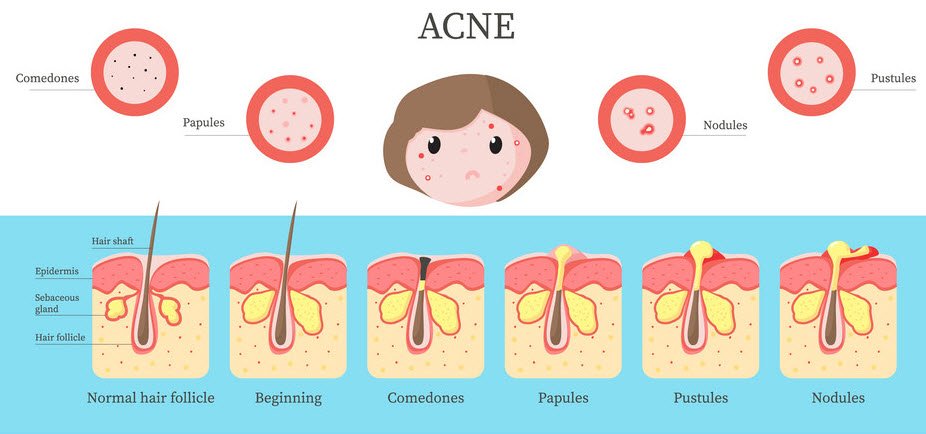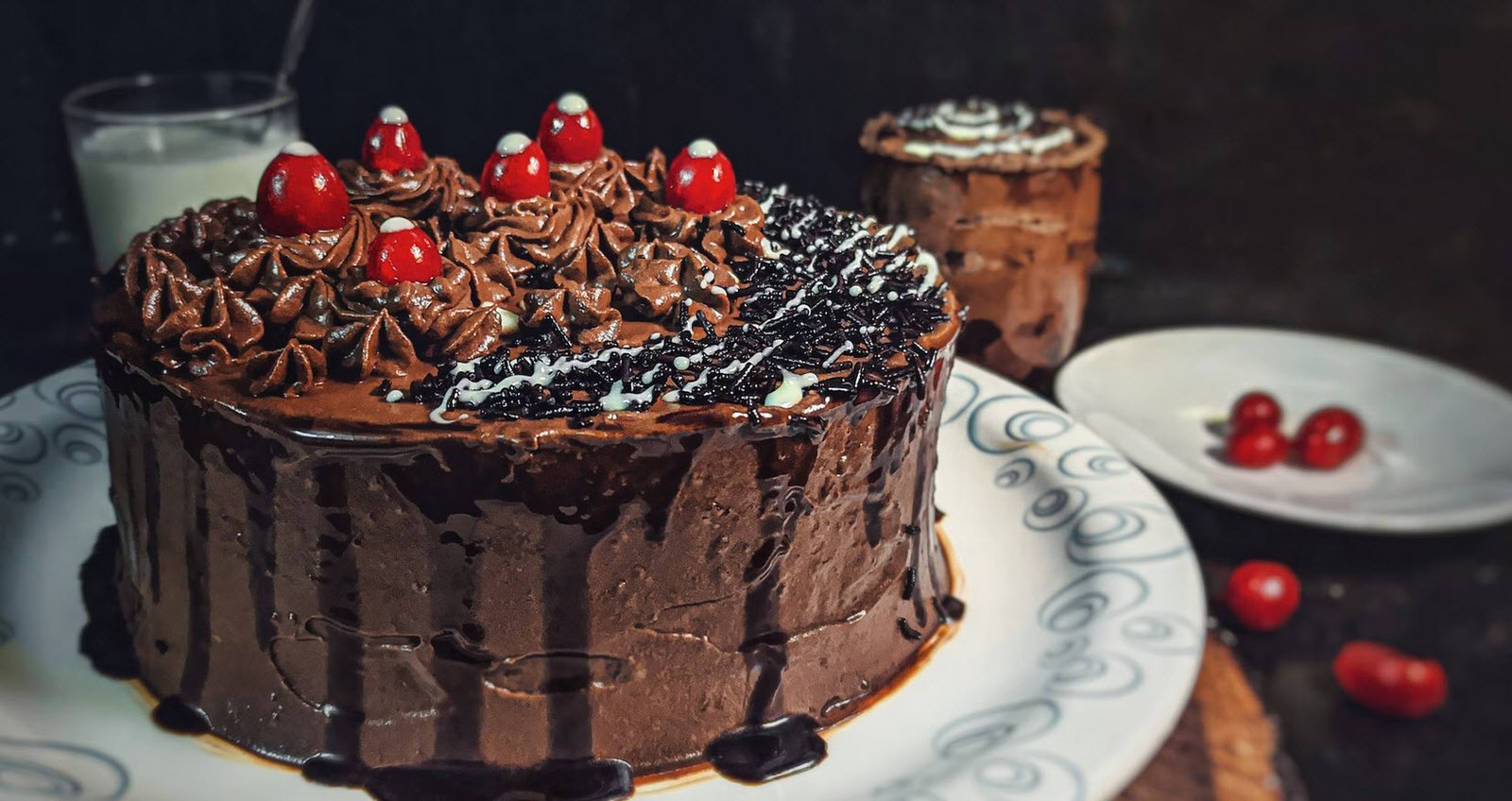
A skin condition that often occurs in the teenage and young adult years, acne is difficult to cope with, and to prevent and treat. While a relationship between acne and food is sometimes classified as a myth, many patients do recognize some foods as triggers, and a healthy diet promotes healthy skin.
Acne, as you may know, affects more than 80% of the world’s population at some time in their life. It is in fact the most common skin disorder treated by dermatologist and most of its victims are teenagers and adults.
According to some scientific research, acne is caused by different factors like hormones, bacteria, and some genetic factors. Some even said that acne is caused by a poor diet, to which many did not agree.
What Causes Acne?
According to the American Academy of Dermatology, there is no exact cause for acne. However, it is believed that four key factors play a role in its development: excess oil, clogged pores, bacteria, and inflammation. Sebum oil production is meant to prevent skin from drying. During adolescence, though, the production increases and this can lead to clogged pores and inflammation. The results can range from simple whiteheads to severe acne lesions.

Many of the traditional food links to acne are considered myths by health professionals. You have likely heard the recommendation to stop eating fried foods or chocolate in order to prevent a breakout. There is no proof that any foods “cause” acne; acne is usually the result of stress, chronic inflammation, and blood sugar problems. There are, however, some foods that can trigger or aggravate these conditions and can be avoided to prevent worsening the condition.
These foods include:
1. High-fat foods
High-fat foods can cause blood sugar levels to fluctuate severely, thereby leading to more acne.
2. Dairy products
Dairy products are often high-fat foods, which as mentioned above can cause blood sugar spikes. Milk also contains hormones that can lead to increased sebum oil production by the body.
3. Caffeine
Caffeine in foods triggers your body to release stress hormones, which increase stress levels.
4. Alcohol
Drinking alcohol can lead to a release of hormones that trigger sebum oil production.
5. Refined carbohydrates and high-sugar foods
The sugars in these carbohydrates cause blood sugar spikes.
While there may not be scientific evidence linking a specific food to acne, there are many nutrients and foods that can promote healthy skin.
Nutrients That May Prevent or Alleviate Acne
The general acne skin care products are the ones that are used as acne-prevention measure. These include cleansers, make-up removers and similar products that help prevent acne. In the real sense, these acne skin care products are just those that should anyway be part of your daily routine.
There are several nutrients that can help alleviate acne including vitamins C and E.
Vitamin C helps to support a healthy immune system, which can defend against bacteria and viruses. It also promotes wound healing and repairs tissue.
Vitamin E assists in the repair of skin damage. All of these factors may play a role in the development of acne.
Try guavas, red sweet peppers, kiwis, and oranges for vitamin C. If guava is available fresh in your area, experiment with using it in homemade juices. Kiwi makes a convenient, transportable snack when you slice it in half and eat it out of the skin with a spoon.
Vitamin E is found in a variety of seeds and nuts, such as sunflower seeds, almonds, hazelnuts, peanuts, and peanut butter. Avocados, tomatoes, and turnip greens also contain vitamin E.
Seeds and nuts are ideal snacks and also great toppers for cereals and salad. Enjoy more greens with your meals by serving roasted chicken breasts or fillets of grilled fish over a bed of sautéed spinach and turnip greens instead of on a bed of rice.
You may also like:- Delicious Heart-Healthy Fruits and Vegetables to Include in Your Diet
- The Health Benefits of Concord Grape Juice
- Understanding Food Cravings – What Do They Mean?
- The Healthiest Seafood to Incorporate into Your Diet
- Top 12 Vegetarian Protein Sources You Need To Know
- 5 Heart-Healthy Nutrients Beyond Fish Oil
- Best 16 Christmas Candies, Cakes and Puddings
- Six Important Medicinal Properties of Ashwagandha
- Top Benefits and Medicinal Properties of Peppermint
- Top 10 Best Indian Food in West Delhi








